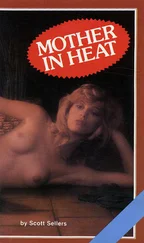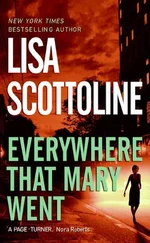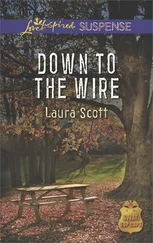Leroy Scott - To Him That Hath
Здесь есть возможность читать онлайн «Leroy Scott - To Him That Hath» — ознакомительный отрывок электронной книги совершенно бесплатно, а после прочтения отрывка купить полную версию. В некоторых случаях можно слушать аудио, скачать через торрент в формате fb2 и присутствует краткое содержание. Жанр: foreign_prose, Зарубежные любовные романы, на английском языке. Описание произведения, (предисловие) а так же отзывы посетителей доступны на портале библиотеки ЛибКат.
- Название:To Him That Hath
- Автор:
- Жанр:
- Год:неизвестен
- ISBN:нет данных
- Рейтинг книги:4 / 5. Голосов: 1
-
Избранное:Добавить в избранное
- Отзывы:
-
Ваша оценка:
- 80
- 1
- 2
- 3
- 4
- 5
To Him That Hath: краткое содержание, описание и аннотация
Предлагаем к чтению аннотацию, описание, краткое содержание или предисловие (зависит от того, что написал сам автор книги «To Him That Hath»). Если вы не нашли необходимую информацию о книге — напишите в комментариях, мы постараемся отыскать её.
To Him That Hath — читать онлайн ознакомительный отрывок
Ниже представлен текст книги, разбитый по страницам. Система сохранения места последней прочитанной страницы, позволяет с удобством читать онлайн бесплатно книгу «To Him That Hath», без необходимости каждый раз заново искать на чём Вы остановились. Поставьте закладку, и сможете в любой момент перейти на страницу, на которой закончили чтение.
Интервал:
Закладка:
Leroy Scott
To Him That Hath
BOOK I
THE HIGHEST PRICE
CHAPTER I
AN INJUSTICE OF GOD
The Reverend Philip Morton, head of St. Christopher's Mission, had often said that, in event of death or serious accident, he wished David Aldrich to be placed in charge of his personal affairs; so when at ten o'clock of a September morning the janitor, at order of the frightened housekeeper, broke into the bath-room and found Morton's body lying white and dead in the tub, the housekeeper's first clear thought was of a telegram to David.
The message came to David while he was doggedly working over a novel that had just come back from a third publisher. He glanced at the telegram, then his tall figure sank back into his chair and he stared at the yellow sheet. Never before had Death struck him so heavy a blow. The wound of his mother's death had been dealt in quick-healing childhood; and though his father, a Western mining engineer, had died but seven years before, David had known him hardly otherwise than as a remotely placed giver of an allowance. Morton had for years been his best friend – latterly almost his only friend. For a space the blow rendered him stupid; then the agony of his personal loss entered him, and wrung him; and then in beside his personal sorrow there crept a sense of the appalling loss of the people about St. Christopher's.
But there was no time for inactive grief. He quickly threw a black suit and a week's linen into a travelling bag, and within an hour after the New York train pulled out of his New Jersey suburb, he paused across the street from St. Christopher's Mission – a chapel of red brick, with a short spire rising above the tenements' flat heads, and adjoining it a four-story club-house in whose windows greened forth boxes of ivy and geraniums. The doors of the chapel stood wide, as they always did for whoso desired to rest or pray, but the doors of the club-house, usually open, were closed against the casual visitor by the ribboned seal of death.
David held his eyes on the fourth-story windows, behind which he knew his friend lay. Minutes passed before he could cross the street and ring the bell. He was admitted into the large hallway, cut with numerous doors leading into club-rooms, and hung with prints of Raphaels, Murillos, Angelicos and other holy master-painters. Overwhelmed though all his senses were, he was at once struck by the emptiness, the silence, of the great house – by its strange childlessness.
As he started up the stairway he saw at its top a tall young woman dressed in black. His mounting steps quickened. "Miss Chambers!" he said.
She came down the stairway with effortless grace, her hand outheld, her subdued smile warm with friendship. He quivered within as he heard his name in her rich voice, as he clasped her hand, as he looked into the sincerity, the dignity, the rare beauty of her face.
There were none of those personal questions with which long-parted friends bridge the chasm of their separation. Death made self trivial. At first they could only breathe awed interjections upon the disaster that so suddenly had fallen. Then David asked the question that had been foremost in his mind for the last two hours:
"What caused his death? I've had only a bare announcement."
She gave him the details. "His doctor told me he had a weak heart," she added. "'In all likelihood,' the doctor said, 'the shock of the cold bath had caused heart failure. Perhaps the seizure itself was fatal; perhaps on the other hand the seizure was recoverable but while helpless he drowned.'
"As soon as I learned of his death I hurried here – I happened to be in town for a few days," she went on, after a moment. "I thought I might possibly be of service. But Bishop Harper has sent a Dr. Thorn, and Mrs. Humphrey told me you were coming, so it seems I can be of no assistance. But if there's anything I can do, please let me know."
David promised. They spoke of the great misfortune to the Mission – which she felt even more keenly than he, for her interest in St. Christopher's had been more active, so was deeper; then she bade him good-bye and continued down the stairway. He followed her with his eyes. This was but the second time he had seen her since her mother's death, six months before; and her beauty, all in black, was still a fresh marvel to him.
When the door had closed upon her, he mounted stairs and passed through hallways, likewise hung with brown prints and opening into club-rooms, till he came to the door of Morton's quarters. Mrs. Humphrey answered his ring, and the housekeeper's swollen eyes flowed fresh grief as she took his hand and led him into the sitting-room, walled with Morton's books.
"The noblest, ablest, kindest man on earth – gone – and only thirty-five!" she said, between her sobs. "Millions might have been called, and no difference; but he was the one man we couldn't spare. And yet God took him!"
The same cry against God's injustice had been springing from David's own grief. Mrs. Humphrey continued her lamentations, but they were soon interrupted by the entrance of a clergyman, of most pronounced clerical cut, whom she introduced as Dr. Thorn. Dr. Thorn explained that Bishop Harper, knowing Morton had no relatives, had sent him to take charge of the funeral arrangements; and he went on to say that if David had any requests, he'd be glad to carry them out. It was a relief to David to be freed of the business details of his friend's funeral. He replied that he had no wishes, and Dr. Thorn withdrew, taking with him Mrs. Humphrey.
Alone, memories of his friend lying in the next room rushed upon him. Morton had been some kind of distant cousin – so distant that the exact fraction of their kinship was beyond computation. After the death of David's mother, Morton's father had stood in place of David's far-absent parent; and Morton himself, though David's senior by hardly ten years, had succeeded to the guardianship on his own father's death nine years before.
This formal relation had grown, with David's growth into manhood, into warmest friendship. David had given Morton the admiring love a younger brother gives his brilliant elder, and had received the affection such as an older brother would give a younger, who was not alone brother but a youth of sympathy and promise. It had been Morton who had insisted that he had a literary future, Morton who had tried to cheer him through his five years of struggling unsuccess. And so the memories and grief that now flooded David were not less keen than if Morton's blood and his had indeed been the same.
After a time David moved to a window and looked out over the geraniums and ivy into the narrow street, with its dingy, red-faced tenements zig-zagged with fire-escapes. His mind slipped back six years to when Morton had taken charge of St. Christopher's, which then occupied merely an old dwelling, and when he, a boy of twenty, had first visited the neighbourhood. The neighbourhood was then a crowded district forgotten by those who called themselves good and just, remembered only by landlords, politicians and saloonkeepers – grimy, quarrelsome, profane, ignorant of how to live. Now decency was here. There was still poverty, but it was a respectable poverty. Men brought home their pay, and fought less often. Shawled wives went less frequently with tin pails to the side entrances of saloons. It was becoming uncommon to hear a child swear.
David's mind ran over the efforts by which this change had been wrought: Morton's forcing the police to close disorderly resorts; his eloquent appeals to the public for fair treatment of such neighbourhoods as his; his unwearied visiting of the sick, and his ready assumption of the troubles of others; his perfect good-fellowship, which made all approach him freely, yet none with disrespectful familiarity; his wonderful sermons, so simple, direct and appealing that there was never an empty seat. He was sympathetic – magnetic – devoted – brilliant. Thus he had won the neighbourhood; not all, for the evil forces he had fought, led by the boss of the ward, held him in bitter enmity. But in three or four hundred families, he was God.
Читать дальшеИнтервал:
Закладка:
Похожие книги на «To Him That Hath»
Представляем Вашему вниманию похожие книги на «To Him That Hath» списком для выбора. Мы отобрали схожую по названию и смыслу литературу в надежде предоставить читателям больше вариантов отыскать новые, интересные, ещё непрочитанные произведения.
Обсуждение, отзывы о книге «To Him That Hath» и просто собственные мнения читателей. Оставьте ваши комментарии, напишите, что Вы думаете о произведении, его смысле или главных героях. Укажите что конкретно понравилось, а что нет, и почему Вы так считаете.












